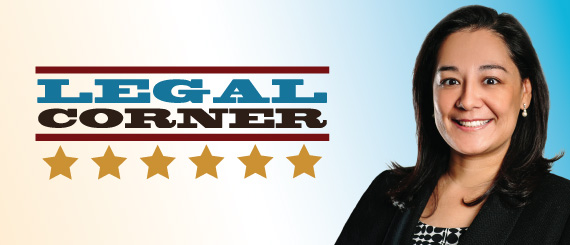
Legal Corner – U.S. Supreme Court Preview
The new term of the U.S. Supreme Court began in October and this article is focused on a few cases that may impact municipalities. The article is adapted from an overview provided by Lisa Soronen from the State and Local Legal Center in Washington, D.C.
Deferred Action for Childhood Arrivals (DACA) Program
In Department of Homeland Security v. Regents of the University of California the Supreme Court will decide whether the Department of Homeland Security’s (DHS) decision to end the Deferred Action for Childhood Arrivals (DACA) program is lawful and can be reviewed by the court. DACA was established in 2012 via a DHS Memorandum that allowed undocumented persons under the age of 16 who are living in the United States since June 15, 2007, to stay, work, and go to school in the United States without facing the risk of deportation for two years (with renewals available). DHS rescinded DACA in September 2017 after receiving a letter from the Attorney General stating the program was unconstitutional and created “without proper statutory authority.”
While the underlying issues about DACA and its impact are of significance to many individuals, the case itself involves procedural arguments about whether a court can review DHS’s decision to rescind DACA because the federal Administrative Procedures Act precludes review of agency actions that are within the purview of the agency’s discretion by law. Three lower courts have concluded ending the program is both reviewable and unlawful. Oral arguments were heard by the Court on November 12, 2019.
An amicus brief filed by 109 cities asserts that if DACA ends, it will harm the economy since DACA recipients pay an estimated $1.7 billion in state and local taxes each year nationally, will undermine public safety priorities by reducing cooperation between DACA recipients and law enforcement, and harm young adults who are attempting to make positive contributions in local communities.
Law Enforcement Stop
In Kansas v. Glover the U.S. Supreme Court will decide whether, for purposes of an investigative stop under the Fourth Amendment, it is reasonable for an officer to suspect that the registered owner of a vehicle is the one driving it absent any information to the contrary. Charles Glover was lawfully driving his vehicle, but a police officer ran the license plate and discovered that Mr. Glover had a suspended license and pulled him over. Mr. Glover claimed the officer violated his Fourth Amendment rights because the officer lacked reasonable suspicion of illegal activity to pull over the car. The Kansas Supreme Court agreed and found that “reasonable suspicion must be based on specific and articulable facts from which rational inferences can be drawn that the detained individual is committing, has committed, or is about to commit a crime.” The U.S. Supreme Court heard oral arguments on November 4, 2019.
Public Policy
In Kelly v. United States the Supreme Court will decide whether a public official “defrauds” the government of its property by advancing a “public policy reason” for an official decision that is not the subjective “real reason” for making the decision. Under the guise of conducting a traffic study, public officials conspired to reduce traffic lanes from the George Washington Bridge (the busiest bridge in the world) to Fort Lee the first week of Fort Lee’s school year due to political motivations. Two of the former employees were convicted of violating a number of federal fraud statutes; one was a cooperating witness. The Third Circuit accepted the United States’ argument that these convictions should stand because the former employees deprived the Port Authority of tangible property. Specifically, the court concluded the time and wages of the former employees and the 14 Port Authority employees they “conscripted” in the scheme was sufficient to deprive the Port Authority of money or property. In the petition to the Court, the officials argue that if using government resources while misrepresenting a subjective motive is fraud “nearly limitless array of routine conduct” will be criminal.” The U.S. Supreme Court will hear oral argument on January 14, 2020.
Conclusion
While these are only a few of the many cases being heard by the U.S. Supreme Court, these decisions will instruct all levels of government on issues of public safety and public policy. An update on these and other cases impacting municipalities will be provided at the end of the term (June 2020).




